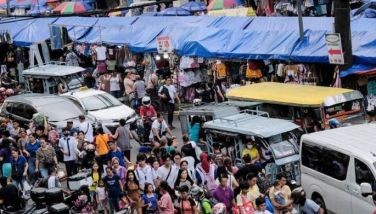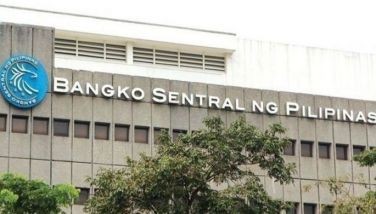MBC says Phl needs to do more to further boost competitiveness
MANILA, Philippines - Despite improving seven places in the World Economic Forum’s (WEF) Global Competitiveness Report (GCR) from a year ago, the Philippines needs to address port congestion, price hikes, power supply as well as the peace and order situation to be among the top one third most competitive countries by next year.
Makati Business Club (MBC) executive director Peter Perfecto told reporters yesterday at the launch of the WEF’s GCR 2014 to 2015 that the government needs to work on the issues which put the country’s gains at risk in order to continue the upward trend in competitiveness rankings and be part of the top third quartile of countries assessed ahead of the 2016 target.
“I think we can do it next year, but like I said this year there are many distractions. You have the port issue and you have rising prices.
This opportunity to reach the upper third next year is at risk so we’ve got to address (issues) very quickly,” he said.
Among the issues which need to be addressed is the port congestion which has affected flow of goods as well as operations of exporters and manufacturing firms.
Containers have piled up at Manila’s ports following the implementation of an expanded truck ban in the city in February.
Aside from port congestion, Perfecto said the government also needs to address rising prices of products, the looming power crisis and the peace and order situation to see further improvement in the country’s competitiveness.
The WEF GCR report, which measures productivity and competitiveness based on over 100 factors grouped into 12 pillars, show that the Philippines moved up to the 52nd spot from 59th place, out of 144 economies.
The improvement was seen as the country posted year-on-year gains in 10 out of the 12 pillars such as institutions (up to 67th from 79th), infrastructure (91st from 96th), macroeconomic environment (26th from 40th), health and primary education (92nd from 96th), higher education and training (64th from 67th), goods market efficiency (70th from 82nd), labor market efficiency (91st from 100th), technological readiness (69th from 77th), business sophistication (46th from 49th) and innovation (52nd from 69th).
The country’s rankings, however, dropped year-on-year in the following pillars: market size (35th from 33rd) and financial market development (49th from 48th).
Since 2010, the Philippines has gained 33 places, making it the country with the biggest improvement posted among all economies studied over the period.
“The results suggest that the reforms of the past four years have bolstered the country’s economic fundamentals,” the WEF said.
While the trends across most of the 12 pillars are positive since 2010, the following are seen as areas of concern given the low rankings: infrastructure, labor market, security and cost of threat of terrorism.
The WEF said the country’s infrastructure remains poor especially with respect to airports and seaports.
It noted that the situation is also worrisome in the labor market as the country has made almost no progress in that pillar since 2010.
- Latest
- Trending





























